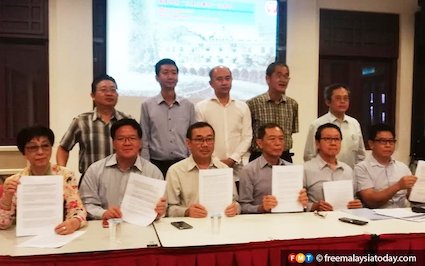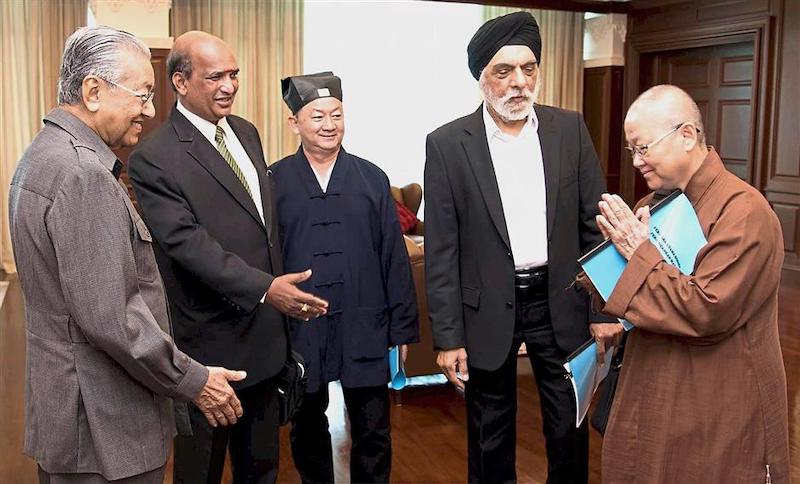Dec 28 anti-Jawi protest to go on

(FMT) – A Chinese organisation here today maintained that the gathering on Dec 28 to discuss the teaching of Jawi in vernacular schools is a consultative meeting, not a rally or stand-off between different racial groups.
Kuala Lumpur and Selangor Chinese Assembly Hall (KLSCH) president Ong Seng Khek said the gathering is also to find solutions to fears that such lessons could lead to Islamisation.
“It is not a stand-off between the Malays and Chinese and must not be interpreted as such by any party,” he said in a press conference.
He also dismissed the notion that the gathering would be “anti-Jawi” or anti-Malay.
“Neither is it on the same level as the Malay Dignity Congress,” he added.
“We don’t want to create any conflict. We need to have consultation to promote unity.”
On Dec 20, Prime Minister Dr Mahathir Mohamad warned Chinese educationist group Dong Jiao Zong that there would be repercussions to urging other groups to attend a rally against the introduction of Jawi lessons in vernacular schools.
Mahathir said it would only result in the Malays having their own congress and talking about closing down Chinese schools.
But Ong reiterated that the meeting, to be held with several Chinese NGOs, is to find solutions.
He spoke of “technical points” which he said were the subject of contention by Chinese parents as well as others.

Malaysian Consultative Council of Buddhism, Christianity, Hinduism, Sikhism and Taoism
These include Indian and East Malaysian Christian parents in Malay-medium national primary schools, who had expressed their concerns through the Malaysian Consultative Council of Buddhism, Christianity, Hinduism, Sikhism and Taoism (MCCBCHST), he said.
“We want a proper consultative meeting to seek proper solutions.”
He and KLSCH vice-president Yang You Wei said the NGO supports Malay as the national language with Rumi as the official script, in line with Article 152 of the Federal Constitution and Section 9 of the National Language Act.
He voiced regret that the promotion of the Jawi script was being seen as a bid for Islamisation, saying this would naturally raise fears among non-Muslim parents.
At the same time, he said the NGO empathises with parents who fear that the introduction of the Jawi script would eventually lead to it being included in examinations.
“This may burden SJK (C) students who have to learn three languages,” he added.
“We believe such fears can be overcome in time through the building of trust, especially if the education ministry will take a more consultative approach regarding policy changes.”
He said KLSCH supports the first part of the Cabinet decision in August this year for Chinese schools to decide whether or not to introduce Jawi script in their curriculum.
“Every school may have its own unique conditions, and decentralising decision-making is the wisest move,” he said.
“However, we oppose the second part of the Cabinet decision which states that the decision of each SJK (C) will be made by the parent-teacher association and parents, excluding the school committees of SJK(C)s who are guardians and owners of schools.”
Because of this, he said, KLSCH supports Chinese educationist groups Dong Zong and Jiao Zong in demanding that school committees be included in the decision-making process for the introduction of Jawi script.

